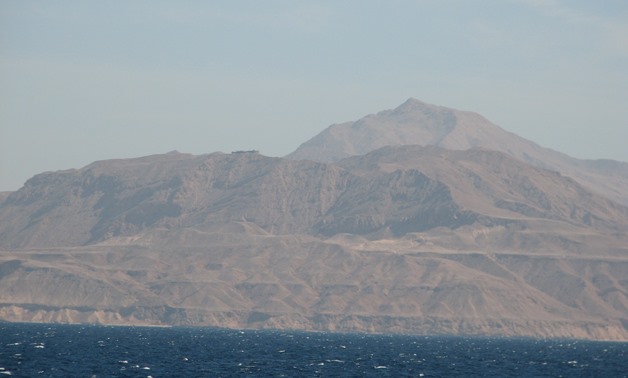
Tiran Island - Wikimedia Commons
CAIRO – 22 June 2017: The Supreme Constitutional Court (SCC) issued on Wednesday a decision to temporarily halt both verdicts from the High Administrative Court regarding the procedures of the Maritime Borders Demarcation Agreement between Egypt and Saudi Arabia.
International agreements are sovereignty acts which shall not be reviewed by the judiciary as per the constitution, according to the court.
Egypt Today interviewed judiciary sources in the SCC and the State Council adjudicating on administrative disputes on Thursday to understand the consequences of the SCC’s decision. From what the sources said, it is highly expected that the conflicting verdicts would be cancelled by the SCC for not being under the jurisdiction of the courts that issued them.
The following points were highlighted by the judicial sources:
1) The SCC’s Chief Chancellor Abdel Wahab Abdel Razek used the right granted by constitutional law to temporarily halt the disputed verdicts until a final ruling is made by the SCC.
2) The chief chancellor’s decision is neither a cancellation of the disputed verdicts nor a final ruling. It is a decision to temporarily suspend the verdicts issued by the High Administrative Court.
3) Case no. 12/39 mentioned in the SCC’s statement is the lawsuit filed by the State Council representing the government on June 1 to halt the execution of the verdicts issued by the High Administrative Court and the Court of Urgent Matters. The lawsuit demanded the SCC to identify the concerned judiciary bodies.
4) The temporary decision came as result of an accelerated request by the State Council, and after the conditions of “seriousness and urgency” were validated by the SCC’s Board of Commissioners.
5) The temporary decision was recommended by the Board of Commissioners over concerns that the verdicts are not part of the terms of reference of the administrative judiciary. International agreements fall under the authority of the Parliament representing the approval authority, and the president representing the endorsement authority granted through Article 151 in the constitution.
6) The Board of Commissioners recommended discarding the conflicted verdicts because sovereignty acts such as international agreements cannot be reviewed by the judiciary.
7) The Board of Commissioners also recommended discarding the verdict of the Court of Urgent Matters.
8) That recommendation is based on the fact that the Court of Urgent Matters is prohibited by Article 190 in the constitution from cancelling the verdicts of the administrative judiciary.
9) The SCC is ruling on the specialization of the courts that issued the verdicts and not on the content of the agreement or whether the Red Sea Islands Tiran and Sanafir are Egyptian or Saudi territory.
10) The final ruling of the SCC would establish two major principles regarding the sovereignty acts not tackled by the judiciary, and regarding the specialization of the Court of Urgent Matters.
The SCC stated in a press release issued Wednesday that the High Administrative Court breached constitutional law by validating the signature by the government’s representative of the agreement on the grounds that signing international agreements is an act of sovereignty that shall not be reviewed by the judiciary.
The Court of Urgent Matters also breached constitutional law by ruling on the demarcation procedures which is not part of its terms of reference, according to the constitution. It is only entitled to review administrative measures, according to the constitution.
Comments
Leave a Comment